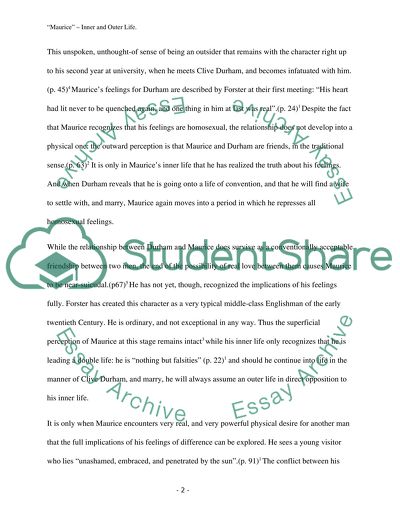Cite this document
(“Inner and Outer Life in E.M Forster's Maurice Essay”, n.d.)
Retrieved from https://studentshare.org/literature/1434791-inner-and-outer-life-in-em-forster-s-maurice
Retrieved from https://studentshare.org/literature/1434791-inner-and-outer-life-in-em-forster-s-maurice
(Inner and Outer Life in E.M Forster'S Maurice Essay)
https://studentshare.org/literature/1434791-inner-and-outer-life-in-em-forster-s-maurice.
https://studentshare.org/literature/1434791-inner-and-outer-life-in-em-forster-s-maurice.
“Inner and Outer Life in E.M Forster'S Maurice Essay”, n.d. https://studentshare.org/literature/1434791-inner-and-outer-life-in-em-forster-s-maurice.


